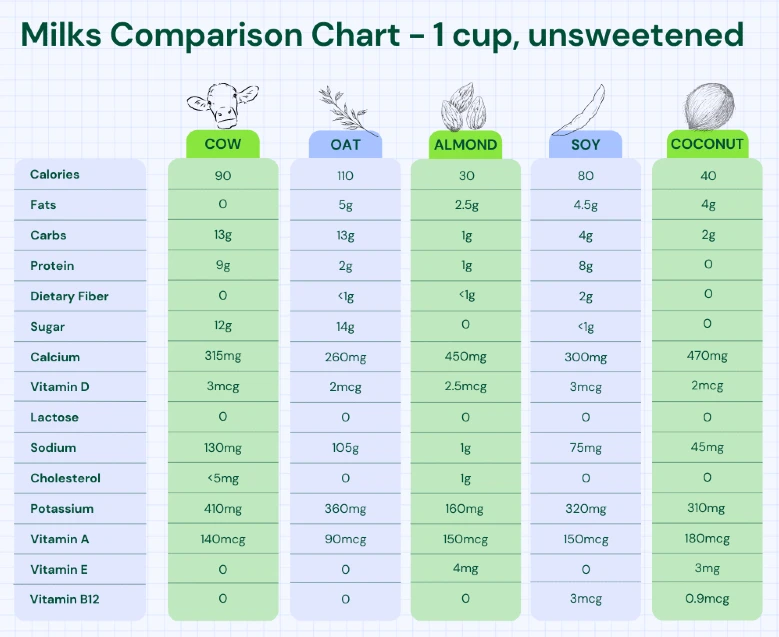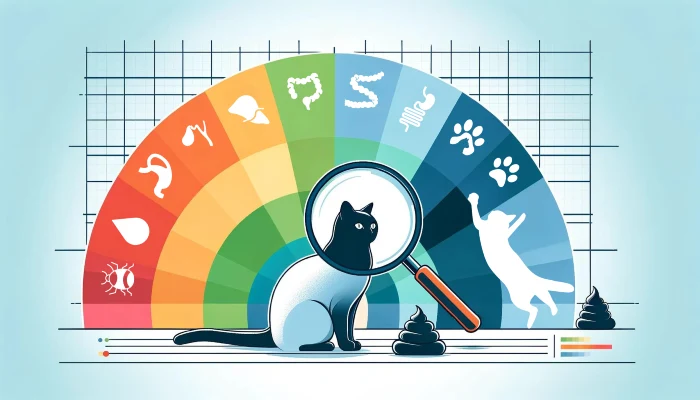The rise of oat milk as a plant-based milk alternative has caught the attention of dog parents everywhere, sparking a debate on its suitability for canine companions. This dairy-free beverage, known for its somewhat shady marketing and alleged health benefits and nutritional value, poses the question: Can dogs enjoy the same lactose-free option that humans do without compromising their health?
As more dog owners seek to integrate human food into their pets’ diets, we need to know the benefits of oat milk and its potential as a good choice for dogs with dietary sensitivities or lactose intolerance. And keep in mind that the majority of dogs are, in fact, lactose intolerant!
This article delves into whether unsweetened oat milk can be a healthy weight management option (it can’t) and a nutritional supplement in small amounts (moderation is very important here), ensuring your furry friend reaps the rewards without facing digestive issues or allergic reactions.
The Nutritional Benefits of Oat Milk in a Dog's Diet
When considering oat milk for your canine companion, you’ll want to consider the nutritional benefits.
Oat milk, particularly the unsweetened oat milk variety, does have dietary fiber and small amounts of essential nutrients like vitamin B and vitamin D, which are pivotal for maintaining your dog’s health. These nutrients contribute to a balanced diet, supporting everything from digestive health to bone strength.
Of course, you’re not going to let your pup lap up a few cups of oat milk a day (and you shouldn’t), so those health benefits won’t add up too much.
Unlike regular cow’s milk or even goat milk, which may cause gastrointestinal upset in dogs due to lactose intolerance, oat milk provides a lactose-free alternative that’s easier on their digestive systems.
Not to mention, the high fiber content in oat milk can aid in promoting healthy weight and soluble fiber helps in the smooth operation of the gastrointestinal tract, reducing the risk of digestive issues.
However, you’ll need to integrate oat milk in small amounts into your furry friend’s diet to prevent any adverse reactions.
Overindulgence can lead to weight gain and abdominal pain, so moderation is key. Serving your dog a small amount of oat milk as an occasional treat rather than a dietary staple ensures they enjoy the benefits of oat milk without the risks.
For dog owners looking to supplement their pet’s nutritional needs, oat milk can be a viable alternative to dairy products. Its essential vitamins and linoleic acid—a beneficial fatty acid—offer a well-rounded addition to your dog’s balanced diet.
Yet, it’s important to go with unsweetened and unflavored oat milk to avoid artificial sweeteners and additional ingredients that could lead to health issues like gastrointestinal upset or allergic reactions.
While incorporating oat milk into your dog’s diet can offer nutritional benefits if done wisely, you may consider trying a low-fat or no-fat lactose-free dairy milk first, like Lactaid (more on that below).
When using oat milk, always start with small quantities to gauge tolerance and ensure the milk is unsweetened to avoid unnecessary sugar content. By doing so, you can safely introduce this plant-based milk alternative as a nutritious, occasional treat for your canine companion.

Understanding Lactose Intolerance and Alternative Milk Options
For dogs with lactose intolerance, navigating the world of dairy products can be a challenge. Lactose intolerance leads to digestive issues and gastrointestinal upset, making regular cow’s milk a less-than-ideal choice for your furry friend. This is where plant-based milk alternatives like oat milk, soy milk, almond milk, and coconut milk come into play, offering nutritional benefits without the discomfort.
Oat milk stands out among these alternatives due to its nutritional value of oat milk, which includes essential vitamins, dietary fiber, and linoleic acid. These components are crucial for maintaining a healthy weight, supporting the dog’s immune system, and promoting overall dog’s health. Additionally, oat milk’s naturally low sugar content (when choosing unsweetened oat milk) makes it a better option than other kinds of milk that might contain much sugar, contributing to weight gain and health problems.
However, it’s essential to introduce new foods like oat milk into your dog’s diet in small amounts. Starting with a small amount of milk and observing for any adverse reactions or allergic reactions is vital. Not all dogs will react the same way to different plant-based milk products, and what works for one dog might not suit another.
When comparing oat milk to other alternatives, such as soy milk or almond milk, consider your dog’s specific nutritional needs and any potential health issues. For instance, almond milk might be suitable for some dogs, but its nut content could pose a risk for dogs with nut allergies. Similarly, soy milk offers health benefits but may not be suitable for all dogs due to its phytoestrogen content.
In essence, oat milk can be an excellent alternative for dogs, particularly those with lactose intolerance or sensitivities to cow’s milk and dairy milk. Its inclusion as a small quantity or occasional treat in a balanced diet can enhance your dog’s diet without the risk of stomach issues. Always opt for unsweetened and unflavored oat milk to avoid artificial sweeteners and additional ingredients that could lead to health issues.
An even better option is to learn to make your own oat milk, that way you’ll know it’s entirely free of additives that could cause issues for your dog. Making your own oat milk at home is easier than you think! I included a short, easy to follow, video from YouTube below that walks you through the simple process, step-by-step.
Easy Way To Make Oak Milk At Home
The Importance of Moderation and Proper Introduction
Introducing oat milk into your dog’s diet must be handled with care, emphasizing the importance of moderation. While oat milk offers nutritional benefits, such as being a good source of dietary fiber and essential vitamins, serving it in large amounts can lead to health issues like weight gain and digestive problems.
To safely incorporate oat milk as part of a balanced diet, start with a small amount of oat milk. This cautious approach allows you to monitor your canine companion for any adverse reactions or signs of gastrointestinal upset. Observing how your dog responds to this new food is crucial in determining whether it’s a good idea to continue its inclusion.
Furthermore, oat milk should be viewed as an occasional treat rather than a staple in your dog’s nutrition. Despite its health benefits, oat milk cannot replace dog food specifically formulated to meet all of your dog’s nutritional needs. Ensuring that oat milk is only a minor part of your pet’s diet helps maintain a healthy weight and prevents nutritional imbalances.
For dog owners exploring plant-based milk alternatives, oat milk is a better option than cow’s milk or goat milk for pets with lactose intolerance. However, it’s essential to choose unsweetened oat milk to avoid much sugar, which can exacerbate health problems. Unflavored oat milk without artificial sweeteners or additional ingredients is the safest choice, reducing the risk of allergic reactions and gastrointestinal issues.
In summary, the best way to introduce oat milk is gradually and in small quantities, ensuring it’s unsweetened and unflavored. This method respects your furry friend’s digestive system and nutritional needs, allowing them to enjoy the benefits of oat milk without unnecessary health risks. Moderate amounts are key to a positive outcome, enhancing your dog’s diet without compromising their health.

Selecting the Best Oat Milk for Your Dog
As with most things in life, it all comes down to choosing the right type! You want your dog to get the potential benefits without any health risks. When it comes to oat milk, not all products are created equal. The best oat milk for your dog is one that closely aligns with their dietary needs and health conditions.
Firstly, always opt for unsweetened oat milk. Many commercial oat milk products contain natural sugars or added sugar content, which can negatively impact your dog’s health, potentially leading to blood glucose levels fluctuation or weight gain. Unflavored oat milk is also preferable, to avoid any additional ingredients that might cause stomach issues or allergic reactions.
For dogs, the nutritional value of oat milk can be a positive addition when chosen correctly. Look for oat milk that is fortified with essential vitamins and fatty acids but low in additives. This ensures your canine companion receives health benefits like improved digestive health and a healthy immune system without the downside of unnecessary extras.
Plant-based milk products have become a good choice for dog parents looking to diversify their furry friend’s diet with new foods. However, it’s essential to understand the nutritional needs of your pet. While oat milk can be a good source of protein and essential nutrients, it shouldn’t replace a complete and balanced diet. It’s all about complementing their regular dog food with small quantities of oat milk as a treat.
Moreover, considering plant-based food as an occasional treat rather than a dietary staple allows for a healthy weight maintenance and avoids digestive issues associated with large amounts of non-traditional dog food. Introducing oat milk at room temperature can make it more palatable and easier to digest for your dog.
In essence, selecting oat milk for your dog involves choosing a product that is unsweetened, unflavored, and ideally, enriched with essential vitamins but free from artificial sweeteners and other additional ingredients. This approach ensures that your dog can enjoy the benefits of oat milk without the risks of oat milk overshadowing the positives.
Potential Risks and Adverse Reactions to Oat Milk
While oat milk presents a healthy alternative for dogs, especially those with lactose intolerance or sensitivities to dairy milk, it’s not without its potential drawbacks. Awareness of the risks of oat milk and possible adverse reactions is essential for dog parents who wish to make informed dietary choices for their furry friends.
One of the primary concerns with introducing oat milk, or any new food, into your dog’s diet is the possibility of gastrointestinal upset. Symptoms like upset stomach, diarrhea, or vomiting can occur if the dog consumes too much oat milk or if they have an underlying allergy to oats. These digestive issues highlight the importance of starting with small amounts and closely monitoring your pet’s response.
Allergic reactions, though less common, are another risk associated with oat milk. Signs of an allergy may include itchiness, skin rash, or more severe gastrointestinal problems. If you notice any of these symptoms after introducing oat milk, it’s crucial to discontinue its use and consult with a veterinarian to address the health issues.
4 Top Allergic Reactions To Look For
If your dog is allergic to oats, the most often experienced allergic reactions include:
- Skin Irritations: Manifesting as itching, redness, or rashes on the skin.
- Ear Infections: Recurrent ear infections can be a sign of a food allergy.
- Gastrointestinal Issues: Such as vomiting or diarrhea or lethargy due to upset stomach
- Licking or Biting Paws: A sign of discomfort or itchiness due to the allergic reaction.
Moreover, oat milk’s nutritional profile, while beneficial in moderate amounts, can lead to weight gain if consumed in large quantities over time. This is particularly concerning for dogs that are overweight or prone to obesity, as excessive weight can exacerbate health conditions and lead to a reduced quality of life.
Another consideration is the sugar content in some commercial oat milk products. Even unsweetened oat milk can contain natural sugars, which, when consumed in excess, can affect a dog’s blood glucose levels. This is why opting for truly unsweetened and unflavored oat milk is critical to minimize the risks.
Most importantly, remember that while oat milk can be a good choice as an occasional treat for your dog, you should proceed with caution. Ensure that the oat milk is unsweetened, unflavored, and introduced into the diet in small quantities to monitor for any adverse reactions.
Always prioritize a balanced diet for your pup, considering their nutritional needs and any existing health conditions. Consulting with a veterinarian before making significant changes to your dog’s diet is the best way to safeguard their health and well-being.
Frequently Asked Questions (FAQs) About Oat Milk for Dogs
Q: Is oat milk a better option than dairy for dogs with lactose intolerance?
A: Yes, for dogs with lactose intolerance, oat milk serves as a better option compared to traditional dairy milk. It lacks lactose, the sugar in dairy that causes digestive issues in lactose-intolerant animals, making it a safer alternative for your furry friend.
Q: Can oat milk improve my dog’s coat and skin health?
A: Oat milk contains fatty acids and linoleic acid, which can contribute to a healthier coat and skin. However, it should complement a diet rich in other essential nutrients and fatty acids from their primary dog food to see significant improvements.
Q: How much oat milk can I give my dog?
A: It’s recommended to give oat milk in small quantities as an occasional treat. A few tablespoons a few times a week is sufficient for most dogs. Always observe your dog for any signs of adverse reactions when introducing oat milk or any new foods.
Q: Are there any dogs that should avoid oat milk altogether?
A: Dogs with specific health conditions or allergies to oats should avoid oat milk. If your dog has a history of gastrointestinal issues or is on a restricted diet for health reasons, consult your veterinarian before introducing oat milk.
Q: Can oat milk replace water in my dog’s diet?
A: No, oat milk should not replace water. Water is essential for hydration and must be the primary liquid in your dog’s diet. Oat milk is only an occasional treat and not a substitute for water.
Q: Does oat milk provide all the essential nutrients my dog needs?
A: While oat milk offers certain nutritional benefits, it doesn’t provide all the essential nutrients your dog needs for a balanced diet. Dog food specifically formulated for their nutritional requirements should remain the core of their diet.
Q: My dog is fat. Will oat milk help my dog with weight loss?
A: No! Skim milk has fewer calories and is more nutritious in comparison to oat milk. If your dog is obese, it’s best not to add any calories until his or her weight is under control. Stick with water for the time being. If you struggle to enjoy oat milk yourself without sharing, consider sharing other healthier treats instead, they’re better for both of you!
Q: What’s the safest way to introduce oat milk to my dog?
A: Introduce oat milk gradually and at room temperature, starting with a small amount to ensure it agrees with your dog’s digestive system. Monitor for any digestive upset or allergic reactions, and discontinue if adverse effects are observed.
5 Reasons Why Giving Your Dog Unsweetened Oat Milk is Okay
- Lactose-Free: Ideal for dogs with lactose intolerance, preventing digestive upset.
- Nutritional Benefits: Contains dietary fiber, vitamin B, vitamin D, and linoleic acid, which can support overall health.
- Low in Allergens: Less likely to cause allergic reactions compared to nut-based milks or dairy.
- Weight Management: Low in calories, helping maintain a healthy weight when given in moderate amounts.
- Hydration Option: Offers a tasty hydration alternative, encouraging dogs to drink more fluids.
5 Reasons to Avoid Oat Milk and Consider Lactaid Skim or 2% Milk Instead
- Complete Nutrients: Lactaid milk provides a more complete range of essential nutrients including calcium and protein without the lactose, making it closer to a dog’s nutritional needs.
- Digestibility: Some dogs may digest Lactaid milk more easily than oat milk due to its closer resemblance to mother’s milk in nutrient composition.
- Protein Content: Higher protein content in Lactaid milk supports muscle maintenance and overall health.
- Calcium-Rich: Offers more calcium per serving, crucial for bone health and growth.
- Familiarity: Dogs may be more accustomed to the taste and consistency of dairy milk, making the transition easier.
Conclusion and Key Takeaways
Incorporating oat milk into your dog’s diet can be a beneficial choice, offering a lactose-free alternative to traditional dairy products. It provides a mix of nutritional benefits, including dietary fiber, vitamins, and fatty acids, which can support your dog’s health in moderation.
However, understanding the nuances of oat milk and its impact on your canine companion is crucial to ensure their diet remains balanced and healthful.
Key Takeaways:
More To Discover
- The Secretive Shift in Pet Food Regulation: What Every Pet Owner Needs to Know
- 7 Fun Activities You Can Do With Your High Energy Dog
- Unleashing Peace of Mind: Exploring the World of Smart Collars for Pet Tracking (2023 Buyer’s Guide Video Included)
- Mysterious Respiratory Illness in Dogs Reported Across Multiple US States
- Moderation is Key: While unsweetened oat milk can be a healthy addition, it should be given in small quantities as an occasional treat to avoid digestive issues or weight gain.
- Nutritional Content Matters: Choosing unsweetened and unflavored oat milk minimizes the risk of adverse reactions and ensures your dog benefits from its nutritional content without unnecessary sugar or additives.
- Lactose Intolerance Consideration: For dogs with lactose intolerance, oat milk provides a safe alternative, but Lactaid milk (skim or 2%) might offer a more complete nutritional profile for some dogs, including essential calcium and protein.
- Consult Your Vet: Before making any significant changes to your dog’s diet, including introducing oat milk or Lactaid milk, consulting with a veterinarian is crucial. They can provide tailored advice based on your dog’s specific nutritional needs and health conditions.
- Nutritional Balance: Remember, no single food item should replace a well-rounded and balanced diet. Oat milk can complement your dog’s diet but shouldn’t become a primary nutrition source over specially formulated dog food.
Ultimately, whether choosing to introduce oat milk or Lactaid milk into your dog’s diet, the goal is to enhance their nutritional intake thoughtfully and safely.
Each dog is unique, and their diet should reflect their individual health needs, activity level, and nutritional requirements. By weighing the benefits against the potential drawbacks and proceeding with caution, you can ensure that your furry friend enjoys a diverse and nutritious diet that supports their overall well-being.

























